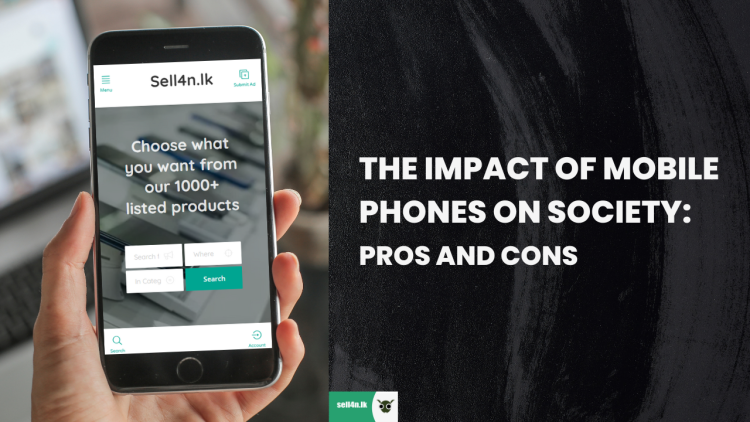Pros of Mobile Phones
- Enhanced Connectivity
Mobile phones enable instant communication regardless of geographical boundaries, allowing us to stay connected with friends, family, and colleagues. They have transformed our communication, fostering stronger relationships and facilitating global connections.
2. Access to Information
Mobile phones serve as powerful tools for accessing information. We can learn any topic with internet connectivity and search engines within seconds. Mobile phones have democratized knowledge, enabling individuals to stay informed, expand their horizons, and continuously learn.
3. Convenience and Productivity
Mobile phones revolutionize convenience and productivity. They combine various features such as calendars, alarms, calculators, and note-taking apps, streamlining our schedules and helping us manage tasks efficiently. Mobile phones maximize productivity by providing easy access to essential tools and resources.
4. Improved Safety and Emergency Assistance
Mobile phones play a significant role in personal safety. In emergencies or urgent situations, having a mobile phone allows individuals to seek help quickly, contact emergency services, or alert family members. Mobile phones provide security and peace of mind, especially when traveling or navigating unfamiliar places.
5. Economic Opportunities
The widespread use of mobile phones has created numerous economic opportunities. They have facilitated the growth of mobile app development, mobile commerce, and digital entrepreneurship. Mobile phones empower individuals to start businesses, reach broader audiences, and participate in the global economy.
Cons of Mobile Phones
- Distraction and Addiction
Mobile phones have the potential to distract and lead to addiction. With constant notifications, social media updates, and entertainment options, individuals can become immersed in the digital world, losing focus on essential tasks or face-to-face interactions. Excessive mobile phone usage can negatively impact productivity, relationships, and mental well-being.
2. Privacy Concerns
Mobile phones store vast amounts of personal information, raising concerns about privacy and data security. The increasing frequency of data breaches and unauthorized access calls for cautious protection of personal information and ensuring the security of mobile devices.
3. Negative Impact on Interpersonal Communication
While mobile phones connect people across distances, they can harm face-to-face communication. Excessive use during social interactions can lead to decreased engagement, reduced empathy, and a decline in meaningful conversations. Balancing digital connectivity and in-person interactions is crucial for maintaining healthy relationships.
4. Health Risks
There are concerns about potential health risks associated with prolonged mobile phone usage. These risks include exposure to electromagnetic radiation, eye strain from long screen time, and poor posture leading to musculoskeletal issues. Moderation and necessary precautions are advised for mobile phone usage.
5. Digital Divide
Despite the ubiquity of mobile phones, a digital divide hinders equal access and opportunities. Affordability, internet connectivity, and technological literacy disparities create barriers for specific populations, limiting their ability to benefit fully from mobile phone technologies. Bridging the digital divide is essential for promoting inclusivity and equal access to the benefits of mobile phones.
Conclusion
In conclusion, mobile phones have profoundly impacted society, bringing numerous advantages and potential challenges. Enhanced connectivity, access to information, convenience, safety, and economic opportunities are some of the significant pros of mobile phones. However, it’s essential to acknowledge the cons, such as distraction and addiction, privacy concerns, negative impact on interpersonal communication, health risks, and a digital divide.
To fully harness the benefits of mobile phones while mitigating their drawbacks, individuals and society must be mindful of responsible usage. Setting boundaries, practicing digital detoxes, and prioritizing face-to-face interactions can strike a balance. Additionally, policymakers and organizations should work towards bridging the digital divide, ensuring equal access to mobile phone technologies, and empowering all individuals to benefit from their potential.
Mobile phones have become indispensable tools that empower individuals, bridge gaps, and drive positive societal changes. With continuous advancements and innovations, mobile phones will continue to shape our future, creating new possibilities and transforming society in remarkable ways. By understanding and addressing both the pros and cons, we can maximize the benefits of mobile phones while minimizing their potential negative impacts on society.
